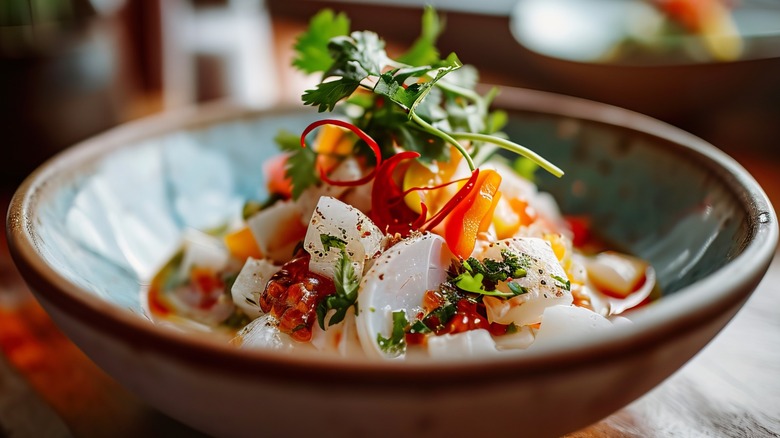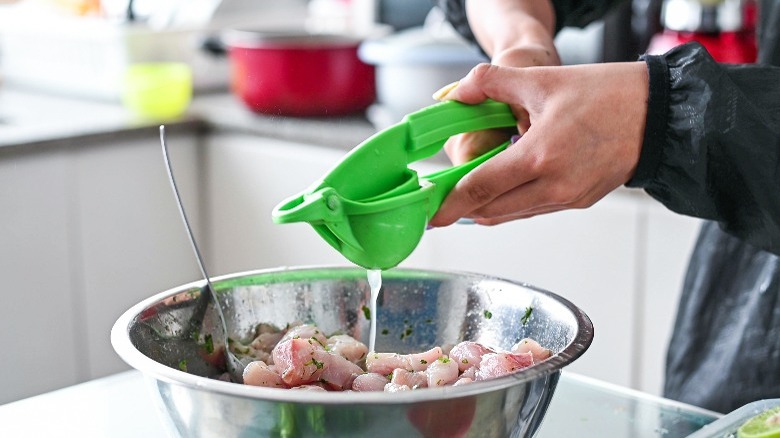Does Citrus Juice Really Cook The Fish In Ceviche?
Ceviche is a lively dish full of fresh ingredients like succulent seafood and citrus. It's the pride of Peru and one of the must-try national dishes of Latin American countries –- not to mention that it's one of the best foods to pair with tequila. But there's a little bit of confusion surrounding ceviche's preparation. The seafood never touches heat, but is ceviche actually raw? Well, no, but it's not exactly cooked, either, and that's where the confusion lies. So Chowhound spoke with an expert to clear the air on this culinary conundrum.
Kantha Shelke, Ph.D., is a certified food scientist and principal of the research firm Corvus Blue LLC. She's also a food science communicator at the Institute of Food Technologists and a senior lecturer at Johns Hopkins University. Chowhound asked Shelke to explain the cooked/uncooked status of ceviche.
Shelke explains, "The citric acid in the citrus juice denatures [breaks down] the proteins in the fish, which is similar to what happens when fish is heated. This process changes the fish's chemical and physical properties. As a result, the fish becomes opaque and firmer, similar to cooked fish." So while the fish's proteins are denatured as if it's been cooked, you keep the other properties of the raw product, making for an extremely satisfying ceviche.
Time is of the essence
Even though ceviche utilizes its citrus ingredients to effectively "cook" the fish, that doesn't mean you can just combine your ingredients and forget the dish entirely. Much as you wouldn't consider baking or frying seafood for an indefinite time, you should think of citrus in the same time-sensitive manner. Once the citrus combines with the seafood ingredients, "the fish begins to cook immediately, and the longer it sits in the marinade juice, the more it cooks," says Shelke. While that wouldn't lead to overcooking in the traditional sense, you still have to be aware of how much time your fish spends marinating.
Citrus-based marinades can inadvertently make your salmon mushy, and lengthy exposure to citrus can have similar detrimental effects on other seafood. For ceviche, brevity is key. Shelke notes that "marinating for more than 20 to 30 minutes can make the fish rubbery," meaning you should only marinate your fish shortly before serving. Of course, that depends on what fish you use and whether you use fish at all or choose another seafood, such as shrimp. All told, around 20 minutes seems to be a solid baseline to "cook" your ceviche and keep its texture, though some choose to marinate their seafood for up to 45 minutes (again, depending on the fish) to shed the chewiness inherent in raw fish. Whichever way you do it, if you have fresh seafood, you're in for a delectable taste of Peru.

